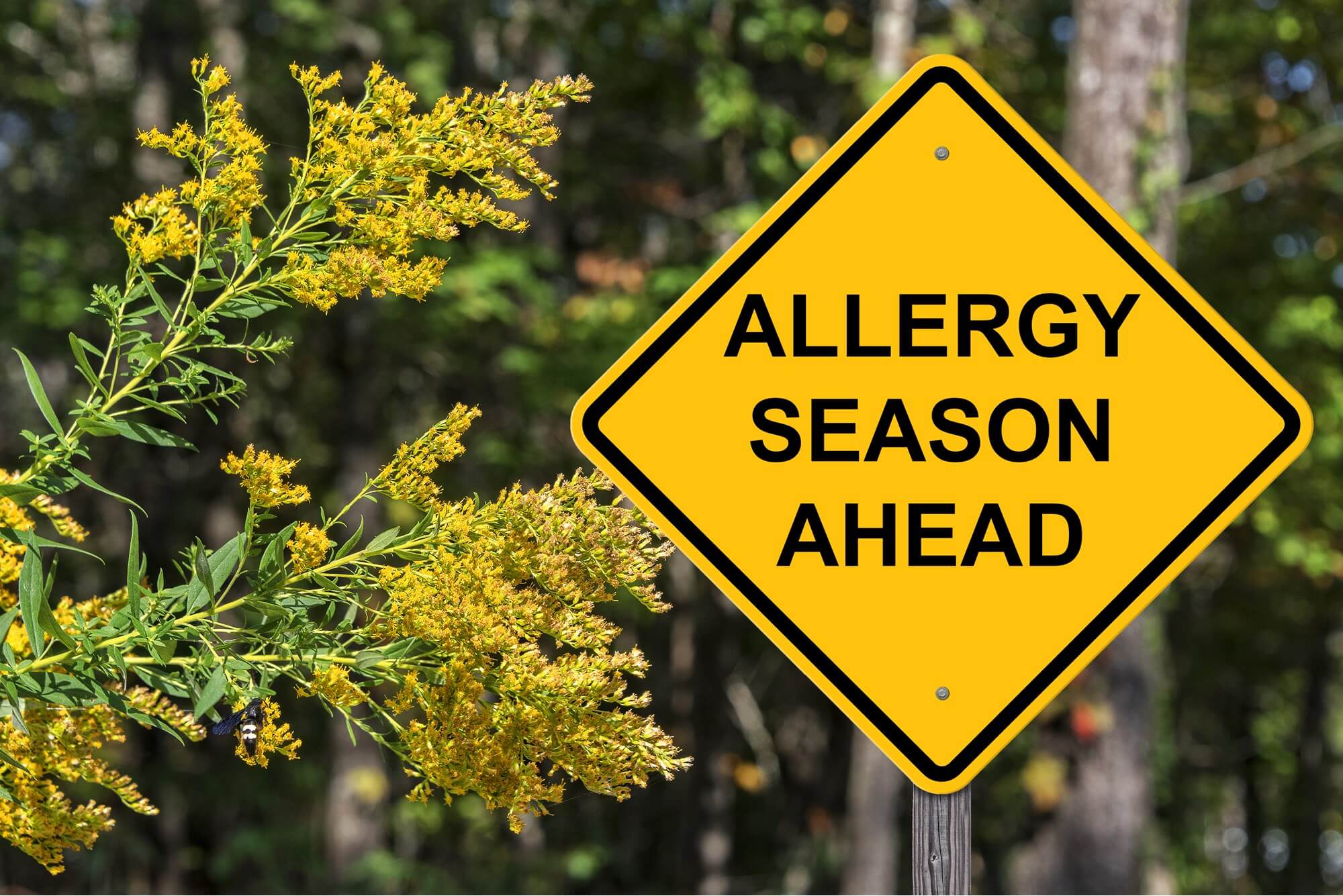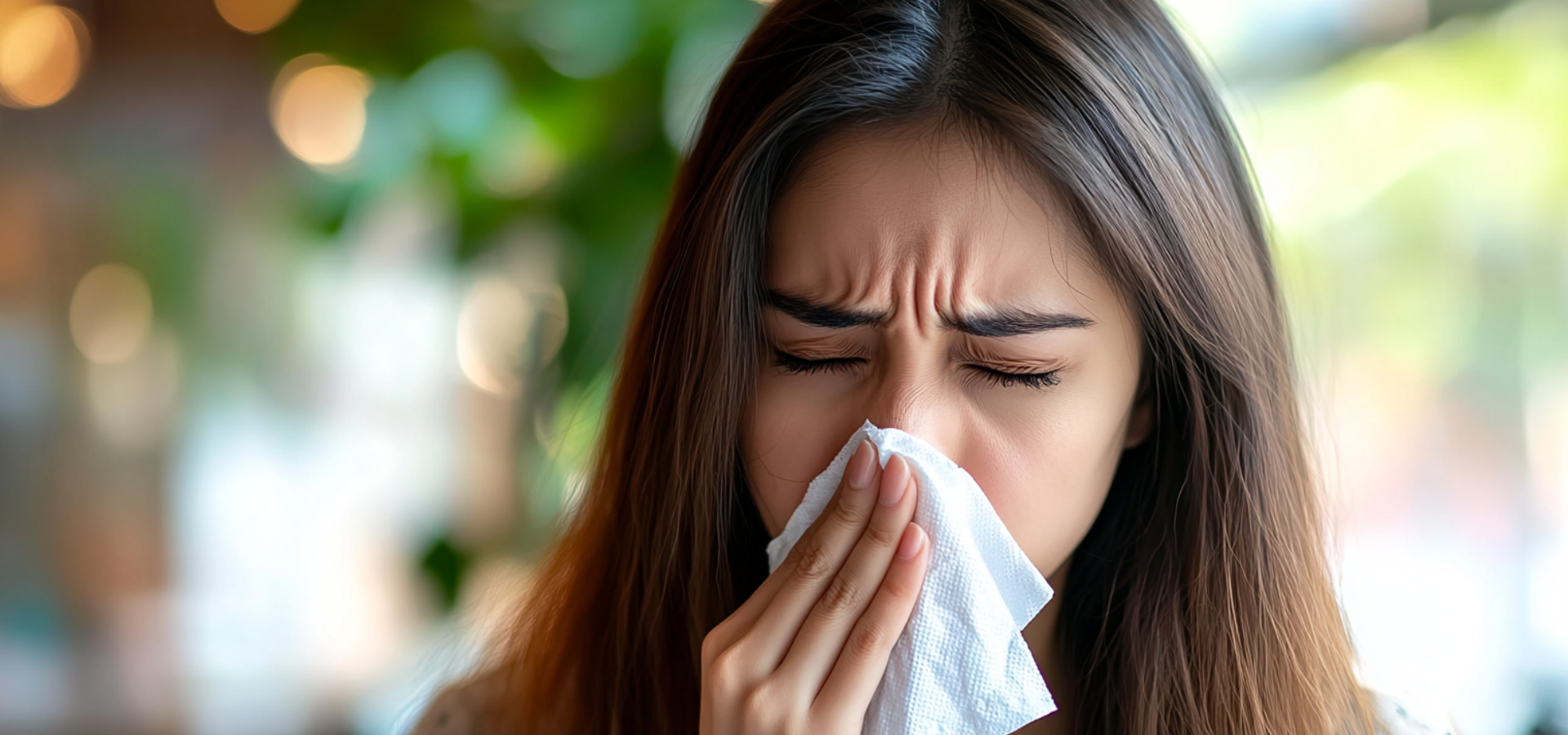
Allergy Season in Texas
Living in Texas when suffering from allergies can be a challenge, as the allergy season is practically year-round. Here, we’ll look at the allergy season in Texas and what you can do to help manage the symptoms.
Why are allergies so bad in Texas?
Residents and visitors alike know how bad their allergies can flare up in Texas. Most places have what is referred to as an “allergy season.” However, arguably ten months of the year, especially in the Austin -Cedar Park – Round Rock metropolitan area, is allergy season.
Allergy season in Texas is supposed to be just during springtime when bees, butterflies, birds, and bats pollinate plants and everything begins to bloom after the winter. This has changed dramatically just in the last decade as allergens in the air have been increasing for years.
One theory presented as to why the whole state seems to suffer from plant-borne allergies year-round is that gardeners tend to plant male trees, bushes, and flowerbeds. Male plants are pollen generators, and as such, they produce the most flowers.
Another reason allergy season in Texas is so long and intense is because Texas has a temperate climate that allows plants to flower and bloom throughout the year rather than just a few weeks or months. Climate change is not helping the situation either, as temperatures rise each year.
Common Allergies in Texas
Let’s look at the most common allergies in Texas in detail.
Ragweed Pollen
Ragweed pollen can travel hundreds of miles, and the plant itself produces around a billion pollen grains per plant. Ragweed grows heavily in the Dallas-Fort Worth area, and its pollen spread is responsible for itchy and watery eyes, as well as sneezing and coughing.
Cedar Tree Pollen
There are many cedar trees all over Texas. They are fairly harmless in autumn and winter, but in the spring and summer, they release their pollen. Because there are such large numbers of cedar trees, Texans who breathe in the pollen can experience symptoms of fever, such as fatigue, sore throat, sinus blockage and pain, and itchy eyes.
Grass Pollen
The grass pollen allergy season is a long one. Grass species all over Texas release their pollen from March to October, and their millions of pollen grains cover Texas for that time frame. Although the effects are less severe than when one inhales cedar pollen, the grass pollination season has longevity.
Mold
Texas is humid but also has a mild climate relative to other states. This is why mold, which can survive under extreme conditions, thrives here. Breathing in the spores can cause coughing and sneezing, and mold spores can also cause itchy and watery eyes.
Worst Seasons for Allergies in Texas
Arguably the entire year in Texas, for the aforementioned reasons, is horrible for allergies. As Texas becomes warmer, the already thriving pollen-generating flora simply makes and spreads more pollen. The pollen counts in Texas continue to rise year-round.
Symptoms of Seasonal Allergies
How can you know if you are affected by plant allergies and not the common cold or another virus? Although the symptoms can overlap, plant allergies cause most of the following simultaneously.
- Itchy eyes/nose/throat
- Watery discharge from the nose
- Stuffy Nose
- Ear Infection
- Stuffed Sinuses
- Headaches
- Sneezing
- Watery Eyes
- Coughing/Wheezing
Can You Prevent Seasonal Allergies?
There are a few steps you can take during times when pollen spreading is vicious and unforgiving.
Know Your Allergies
You can get tested at your family doctor for allergic reactions to specific types of pollen. You can also pay attention during certain times of the year when you experience the most symptoms. What is blooming during that time? You can find out what you are most allergic to so you can avoid areas where those plants bloom heavily.
Be Careful During That Specific Season
Once you know your allergies, you can prepare yourself. If you absolutely must drive around or go outside, wear a face mask. You can also preemptively take over-the-counter allergy medication before you go somewhere.
Plan Your Activities Accordingly
Spend as little time outside during your particular allergy-sensitive season as possible. If you are planning a wedding, for example, do not make it an outdoor wedding during extreme pollen dissemination. Keep outdoor sports and exercise to a minimum.
Getting Your Allergies Under Control
Although many people are considering moving out of Texas because of its increasing allergy issue, many are choosing to stay. Despite the extreme pollen count in Texas throughout the year, there are steps you can take (planning activities indoors, wearing a mask, taking medication) to help you live healthily and happily in the Lone Star State.
If all the above fails, you can get in touch with Frontier Allergy, and our specialist Dr. Reshamwala will evaluate your case and let you know about the best treatment options.

Written/Reviewed by: Dr. Neha Reshamwala
NPI number: 1780874578
Page last reviewed: 03/12/2024


 All blog posts
All blog posts





